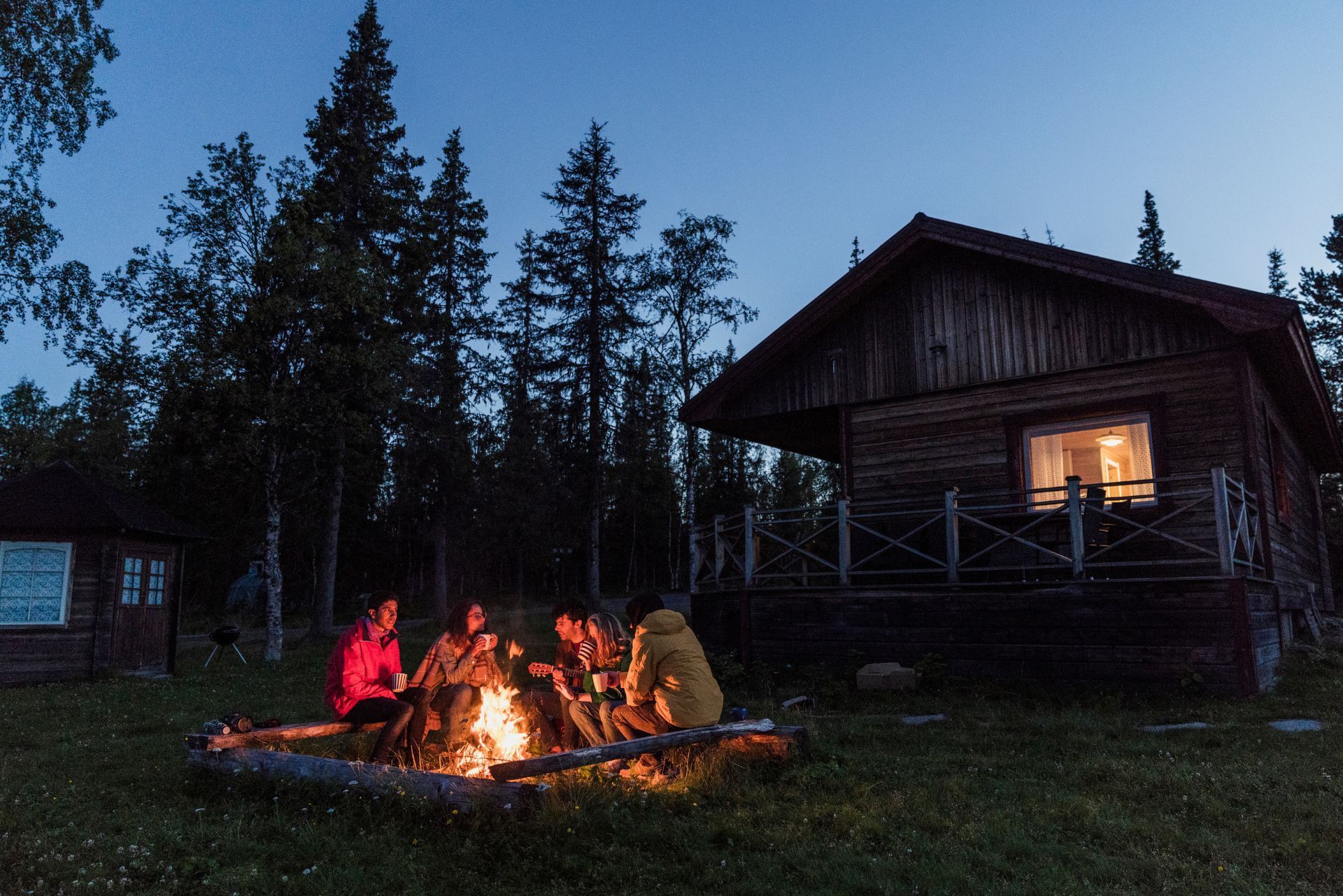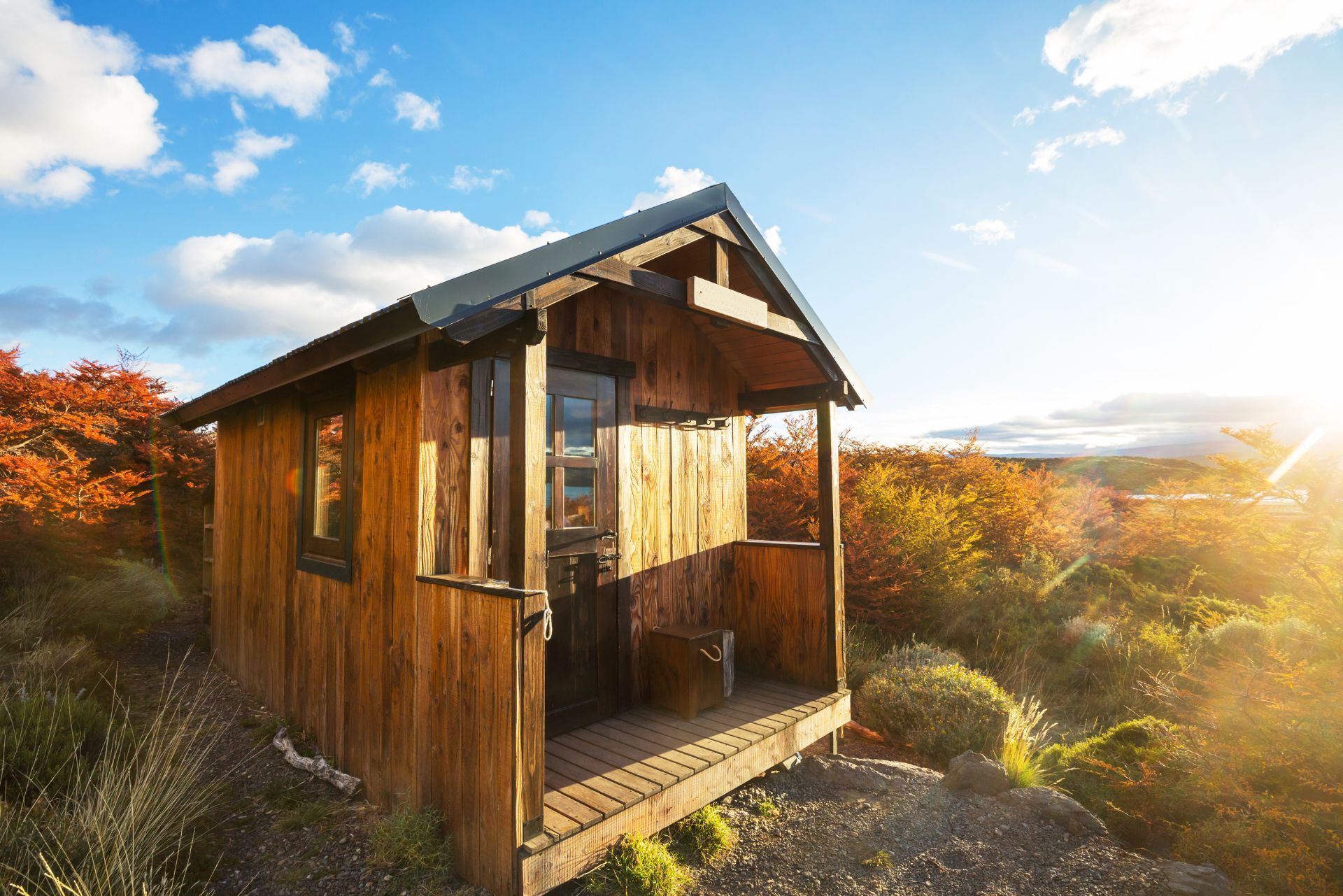
Top 3 Recommended Policies
Renting out a cabin in Connecticut can be a lucrative and enjoyable venture, but it also comes with unique risks and insurance needs. Whether you own a cozy lakeside retreat or a rustic woodland getaway, understanding the nuances of cabin rental insurance is essential to protect your investment and provide peace of mind. This comprehensive guide explores everything you need to know about cabin rental insurance in Connecticut, including coverage options, recent market trends, and regulatory updates that impact property owners and renters alike.
With the rise of platforms like Airbnb and growing digital risks, homeowners and rental property owners in Connecticut are increasingly seeking specialized insurance solutions tailored to their unique situations. For more on how these trends are shaping insurance in the state, check out the homeowners insurance market trends in Connecticut.
Why Cabin Rental Insurance is Essential in Connecticut
Cabin rentals in Connecticut offer a wonderful way to enjoy the state's natural beauty, but they also expose owners to a variety of risks. From property damage caused by weather events to liability claims from guests, the potential for financial loss is significant without proper insurance coverage.
Connecticut’s climate, with its cold winters and humid summers, can lead to issues such as frozen pipes, storm damage, and mold, all of which can be costly to repair. Additionally, as cabins are often located in more remote or wooded areas, risks such as fire or wildlife damage are heightened. Proper insurance helps mitigate these risks, ensuring that owners can recover quickly from unexpected incidents.
Moreover, the growing popularity of short-term rentals has introduced new liability concerns. Guests may engage in activities that increase the risk of injury or property damage, making liability coverage a critical component of any cabin rental insurance policy.
In addition to the aforementioned risks, cabin owners must also consider the potential for theft or vandalism, especially in areas that may not be frequently monitored. The isolation of many cabins can make them attractive targets for opportunistic criminals. Insurance policies that cover theft can provide peace of mind, allowing owners to focus on providing a welcoming experience for their guests rather than worrying about the security of their property. Furthermore, having a comprehensive insurance policy can also cover personal belongings that may be left in the cabin, adding another layer of protection.
Another important aspect of cabin rental insurance is coverage for loss of rental income. In the event that a cabin becomes uninhabitable due to damage from a covered peril, owners can face significant financial strain due to lost rental income. Many insurance policies offer provisions that compensate owners for this loss, allowing them to maintain financial stability while repairs are underway. This feature is particularly crucial in Connecticut, where the tourism season can be short-lived, and any disruption can have a lasting impact on an owner’s revenue stream.

Understanding Coverage Options for Cabin Rentals
Cabin rental insurance typically combines elements of homeowners insurance with specialized coverage designed for rental properties. Here are the main types of coverage to consider:
Property Damage Coverage
This protects the physical structure of the cabin and any personal property owned by the landlord, such as furniture and appliances. It covers damages from fire, storms, vandalism, and other perils. Given Connecticut’s exposure to seasonal weather extremes, this coverage is vital. Additionally, many cabin owners invest in unique furnishings and decor that enhance the guest experience, making it crucial to ensure that these items are also protected. In the event of a natural disaster, having robust property damage coverage can mean the difference between a quick recovery and a prolonged financial setback.
Liability Coverage
Liability insurance protects cabin owners if a guest or visitor is injured on the property and decides to file a lawsuit. This coverage can help pay for legal fees, medical expenses, and settlements. With the rise of home-sharing platforms, liability claims have become more frequent, making this coverage increasingly important. Moreover, liability coverage often extends to incidents that occur outside the cabin, such as injuries on a deck or in the yard, which can be particularly relevant for properties that feature outdoor amenities like hot tubs or fire pits. Understanding the nuances of your liability coverage can help you navigate potential risks more effectively.
Loss of Rental Income
If your cabin becomes uninhabitable due to a covered loss, this coverage can reimburse you for the rental income you lose during repairs. This ensures that you’re not financially burdened while your property is out of commission. Furthermore, it's essential to keep in mind that the duration of repairs can vary significantly depending on the extent of the damage. Some policies may even offer coverage for additional expenses incurred while you seek alternative accommodations for guests, adding another layer of financial protection during challenging times.
Additional Coverage Options
Some insurers offer endorsements or riders for specific risks such as:
- Cyber Liability: Protects against losses related to data breaches or cyberattacks, which are becoming a concern for rental property owners managing bookings and payments online.
- Home-Sharing Coverage: Designed specifically for short-term rentals, this coverage addresses gaps in standard homeowners policies that often exclude commercial use of the property.
These options reflect the evolving nature of risks associated with cabin rentals in Connecticut, where digital platforms and new usage models are reshaping the insurance landscape. Additionally, as more travelers seek unique accommodations, the demand for cabins has surged, leading to increased competition among rental properties. This shift necessitates that cabin owners not only secure adequate insurance coverage but also stay informed about changing regulations and market trends that could impact their rental business. By proactively managing these aspects, cabin owners can better protect their investments and enhance their guests' experiences.
Connecticut’s Captive Insurance Market and Its Impact on Rental Properties
Connecticut has become a significant hub for captive insurance companies, with 78 captive insurers operating in the state as of the end of 2023, including 25 smaller "cell" captives under 17 sponsor companies. This growth reflects a broader trend of businesses seeking more tailored and cost-effective insurance solutions through captive arrangements.
Captive insurance allows property owners and businesses to create their own insurance company to cover specific risks, often resulting in more affordable and flexible coverage. For cabin rental owners, this can mean access to customized policies that better address their unique risk profiles, especially in a market where traditional insurers may be tightening capacity.
As noted in a recent Connecticut Post article, the captive insurance business is evolving rapidly, and there is a shortage of capacity, which could influence how rental property owners secure coverage in the future. This shift is particularly important for those in the rental market, as they often face unique challenges such as fluctuating occupancy rates and seasonal risks that standard insurance policies may not adequately cover.
Moreover, the rise of captive insurance in Connecticut is not just a boon for property owners; it also stimulates the local economy. As more businesses establish captives, there is an increased demand for professional services, including legal, actuarial, and risk management consulting. This influx of activity can lead to job creation and enhance the overall economic landscape of the state. Additionally, the regulatory framework in Connecticut is designed to foster innovation and growth in the captive insurance sector, making it an attractive destination for businesses looking to establish their own insurance solutions.
Furthermore, the flexibility offered by captive insurance can empower rental property owners to implement proactive risk management strategies. By analyzing their specific risks and crafting bespoke policies, these owners can better protect their investments while also potentially lowering their overall insurance costs. This proactive approach can lead to improved safety measures and enhanced property management practices, ultimately benefiting both the owners and their guests. As the captive insurance market continues to mature, it will be interesting to observe how these dynamics evolve and what new opportunities arise for rental property owners in Connecticut.
How Rising Premiums Affect Cabin Rental Insurance
Insurance premiums nationwide have been on the rise, and Connecticut is no exception. In 2024, business insurance premiums increased for the 26th consecutive quarter, with an overall rise of 7.7% compared to the last quarter of 2023. This trend reflects broader market pressures such as increased claims frequency, inflation in repair costs, and evolving risk landscapes.
For cabin rental owners, this means that insurance costs may be higher than in previous years, making it even more important to shop around and understand the coverage details. Some strategies to manage rising premiums include investing in risk mitigation measures, such as installing smoke detectors, security systems, and maintaining the property regularly. Additionally, cabin owners might consider bundling their insurance policies, which can often lead to discounts and lower overall costs. Engaging with an insurance broker who specializes in rental properties can also provide insights into tailored coverage options that meet specific needs while potentially reducing premiums.
Connecticut’s Insurance Department has recognized these challenges and recently implemented new laws aimed at promoting captive insurance to provide businesses with more affordable coverage options. These regulatory changes may offer some relief to cabin rental owners seeking cost-effective insurance solutions. Furthermore, the state is encouraging the development of community-based insurance pools, which allow multiple property owners to share risk and collectively negotiate better terms with insurers. This innovative approach not only fosters a sense of community among cabin owners but also enhances their bargaining power in an increasingly competitive insurance market.
As the landscape of cabin rentals continues to evolve, owners must stay informed about the latest trends in insurance and property management. For instance, the rise of short-term rental platforms has introduced unique risks that traditional insurance policies may not adequately cover. Understanding these nuances can help owners select the right policy that not only protects their investment but also aligns with their business model. Additionally, educating guests about safety protocols and property rules can further minimize risks and potentially lower insurance costs over time.

Emerging Risks: Cyber Liability and Home-Sharing Coverage
The digital age has introduced new risks for cabin rental owners, particularly those who use online platforms to manage bookings and payments. Cyber liability coverage has become increasingly relevant as property owners face potential threats such as data breaches, hacking, and identity theft. With the rise of sophisticated cyberattacks, it is crucial for property owners to understand that their personal information, as well as that of their guests, can be targeted. Cybercriminals often exploit vulnerabilities in online booking systems, making it essential for owners to not only secure their digital platforms but also to have adequate insurance coverage that can mitigate the financial repercussions of such incidents.
Additionally, the popularity of home-sharing services like Airbnb has created demand for specialized insurance products that address the unique risks associated with short-term rentals. Standard homeowners policies often exclude commercial activities, leaving gaps in coverage that can expose owners to significant financial losses. These gaps can include liability for guest injuries, property damage caused by renters, or even loss of rental income due to unforeseen events. As the home-sharing market continues to expand, property owners are increasingly aware of the need for tailored insurance solutions that provide comprehensive protection against these specific risks.
According to
FinsuranceGuide, Connecticut homeowners are increasingly seeking these additional coverage options to protect against digital risks and the complexities of home-sharing. This trend is not limited to Connecticut; across the nation, property owners are becoming more proactive in assessing their insurance needs. Many are turning to insurance agents who specialize in home-sharing and cyber liability to ensure they have the right policies in place. Furthermore, as regulations surrounding short-term rentals evolve, understanding the legal implications and insurance requirements has become paramount for owners looking to navigate this dynamic landscape effectively.
Climate Change and Risk Reduction: What Cabin Owners Should Know
Climate change is affecting insurance markets across the country, including Connecticut. Increased frequency and severity of storms, flooding, and other weather-related events pose growing risks to cabin properties.
Insurance providers are beginning to pay closer attention to verifiable, science-based investments in risk reduction. This means that cabin owners who proactively implement measures such as improved drainage, reinforced structures, and fire-resistant landscaping may benefit from more attractive coverage options or premium discounts.
As highlighted by experts in a recent
Connecticut Public report, insurers are increasingly recognizing the value of these efforts in mitigating climate-related risks.
Tips for Choosing the Right Cabin Rental Insurance
Selecting the right insurance policy for your Connecticut cabin rental involves careful consideration of your specific risks, usage patterns, and financial goals. Here are some tips to guide you:
- Assess Your Risks: Consider location-specific hazards such as flooding, wildfire, or theft, and ensure your policy covers these adequately.
- Understand Policy Exclusions: Standard homeowners insurance often excludes short-term rental activities, so verify that your policy covers rental use or purchase a specialized policy.
- Compare Quotes: Obtain multiple quotes from reputable insurers, including those offering captive insurance solutions, to find the best balance of coverage and cost.
- Invest in Risk Mitigation: Implement safety measures and document them, as this can lead to premium discounts and smoother claims processes.
- Consult an Insurance Professional: Work with an agent familiar with Connecticut’s rental market and regulatory environment to tailor coverage to your needs.
Conclusion: Protecting Your Connecticut Cabin Rental Investment
Owning and renting out a cabin in Connecticut offers great opportunities but also requires diligent risk management. With rising premiums, evolving risks like cyber threats and home-sharing liabilities, and the impact of climate change, securing the right insurance coverage is more important than ever.
Connecticut’s growing captive insurance market and recent regulatory initiatives provide new options for cabin rental owners seeking affordable and customized coverage. By understanding the available insurance products and proactively managing risks, cabin owners can safeguard their properties and enjoy the benefits of rental income with confidence.
For ongoing updates and insights into Connecticut’s insurance landscape, including the latest on captive insurance and homeowners’ coverage trends, resources like the
Connecticut Post are invaluable.
Contact Us
Phone
Locations
Connecticut Location
703 Hebron Ave., 3rd Floor, Glastonbury, CT 06033
North Carolina Location
436 East 36th St., Charlotte, NC 28205


